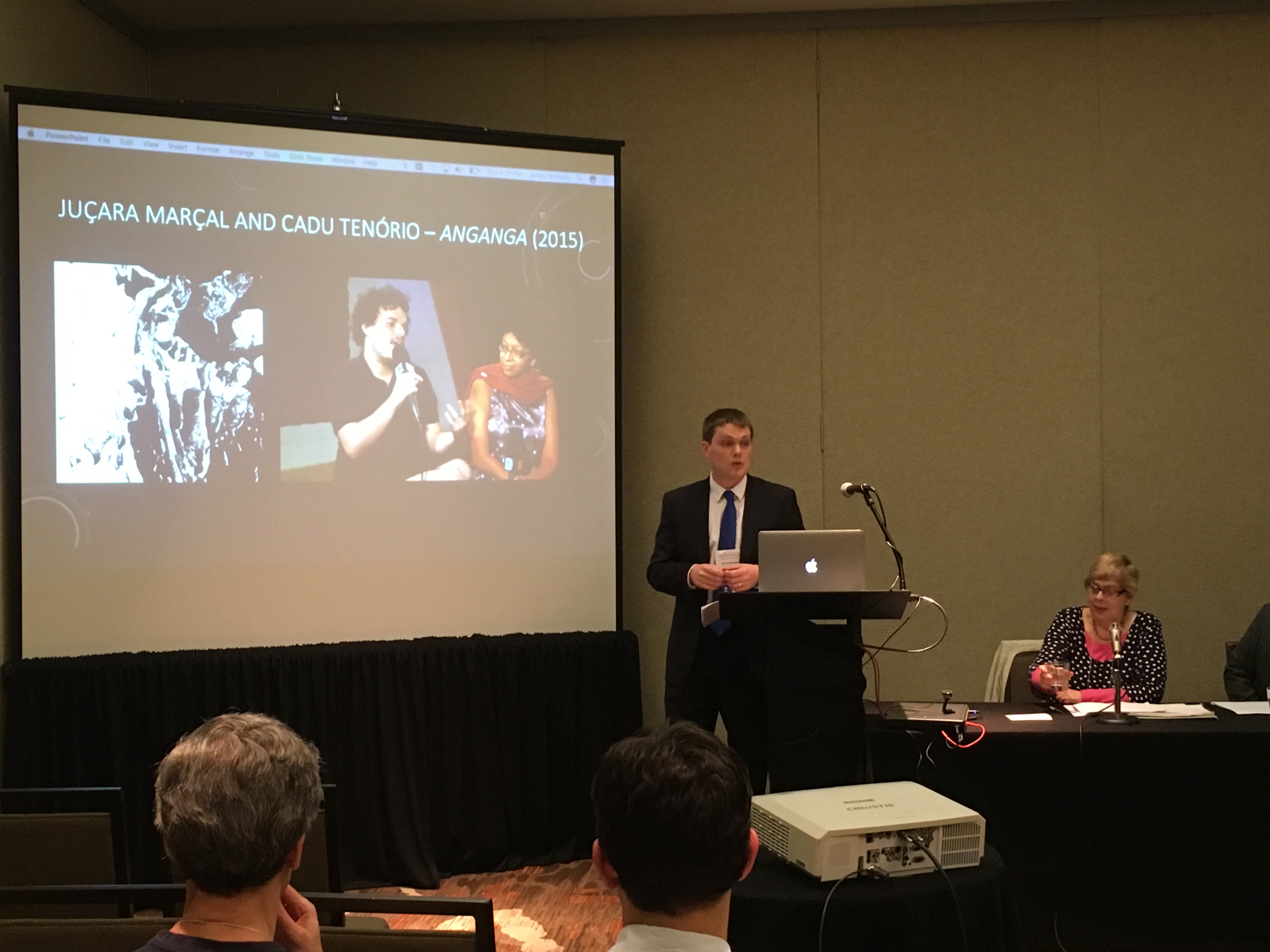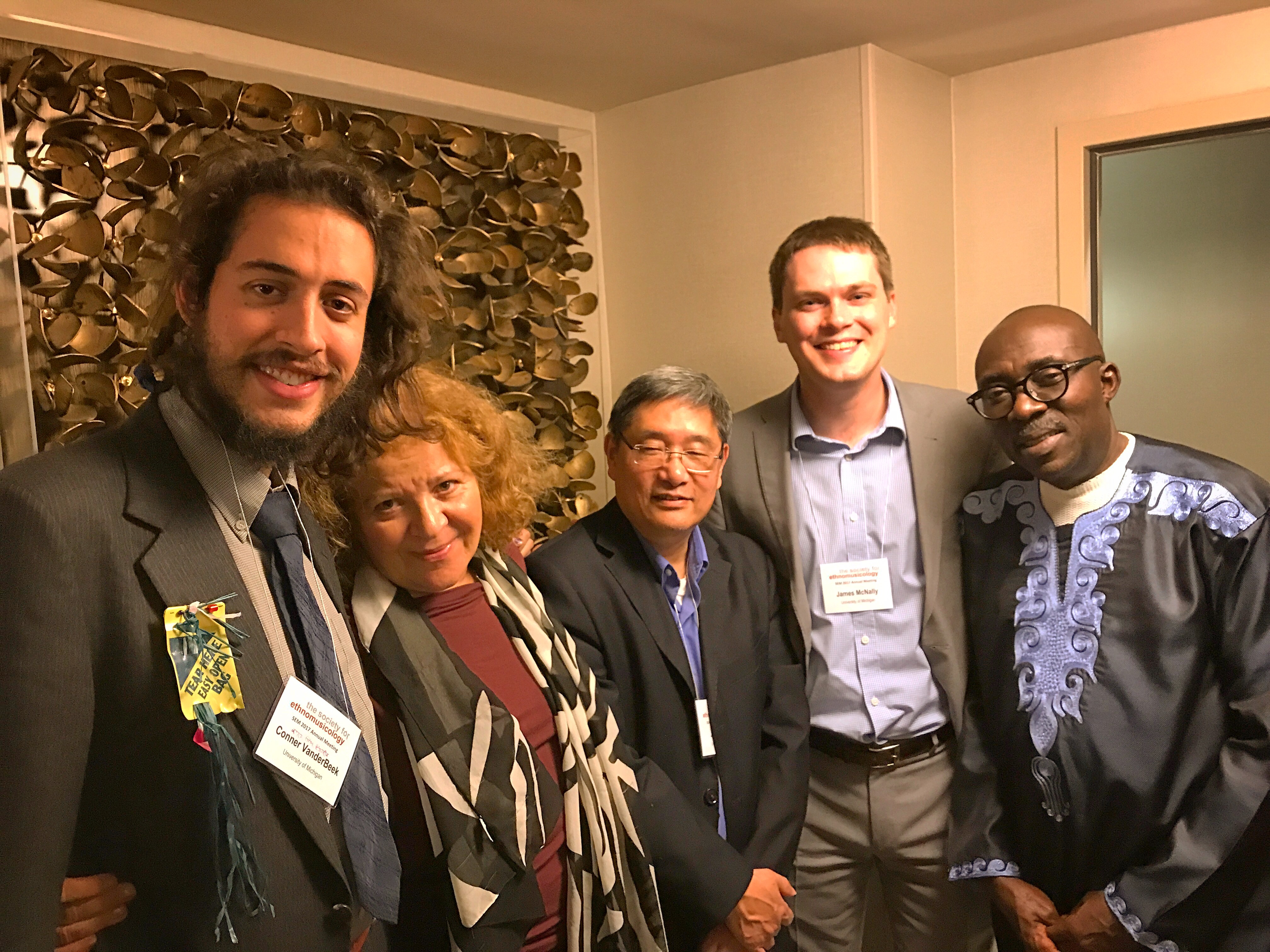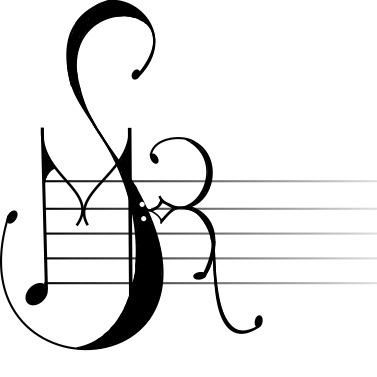
Recently, several ethnomusicologists from U-M traveled to Denver, CO for the Annual Meeting of the Society for Ethnomusicology (Oct 26–29). Two SMR members, James McNally and Ho Chak Law, presented papers at this conference. James’s paper explores vissungo songs from the Brazilian state of Minas Gerais, and Ho Chak’s paper examines a musical arrangement by Tanya Tagaq, a Canadian Inuit throat singer. Please see below for their abstracts.
Abstracts
“You Don’t Have to Throw Away Tradition to Pursue Invention”: Tribute, Transformation, and Afro-Brazilian Historical Consciousness (James McNally)

This paper investigates contemporary experimental reinterpretations of traditional vissungo songs from the Brazilian state of Minas Gerais. Developed over the course of the eighteenth and nineteenth century by slaves working in the region’s diamond mines, vissungos are traditionally sung in a call-and-response fashion with percussion accompaniment and lyrics derived from Portuguese, Umbundu, and Yoruba. Today, they are performed in congado festivals organized by the Catholic Church. In order to examine their present-day legacy, I discuss the album Anganga (2015), by vocalist Juçara Marçal and instrumentalist Cadu Tenório. Anganga situates reinterpretations of vissungos within an experimental instrumental arrangement incorporating elements of drone, electronica, and noise. Drawing from interviews with the two musicians, my analysis focuses on the ways in which the album acts as a site for reinventing traditional Brazilian song forms and reimagining the legacy of historic Afro-Brazilian musical practices. I argue that the musicians’ approach functions as “symbolic contestation,” in which individual actors transform established musical forms that occupy a symbolically dominant position within Brazilian culture (Bourdieu 1991:72). The paper further addresses how Marçal, a lifelong participant in Afro-Brazilian musical traditions such as congados, conceives of the album as a means of respecting the history of vissungo practice and capturing the experience of attending congado festivals, while at the same time reimagining the tradition within a novel musical-structural form with new creative possibilities. I situate this analysis within a consideration of how other experimental musicians in Brazil are transforming Brazilian genres and song traditions on a larger scale.
 Conner and James with several veteran ethnomusicologists
Conner and James with several veteran ethnomusicologists
Tanya Tagaq’s Performative Counterpoint Against Robert Flaherty’s Nanook of the North (Ho Chak Law)
In 2012, the Toronto International Film Festival commissioned Tanya Tagaq, a Canadian Inuit throat singer, to prepare and perform a new musical arrangement of Nanook of the North, a 1922 silent film oriented to a Northern Quebec Inuit family directed by American documentary filmmaker Robert Flaherty, for the opening night of First Nations Cinema, an exhibition program curating a selection of “movies with an aboriginal perspective [but] share an unexpectedly commonality.” The premiere of this commission was a notable success. It led to a still-ongoing tour screening-cum-performance in North America and some European cities. It also evolved into Animism, a 2014 recording album that won Tagaq the Juno Award for Indigenous Music Album of the Year. Noting that Tagaq has expanded the original commission into a widely recognized cultural project that is concerned with issues of race and colonialism, this paper investigates how she actively engages with both the cinematic medium and Nanook of the North through creating temporal disjunction, manipulating vocal timbre and stage demeanor, and providing conceptual juxtaposition of sound and image in her musical arrangement, thereby conveying certain rhetorical ideas in a fashion in reminiscence of the politically-charged Soviet montage movement championed by Sergei Eisenstein and Dziga Vertov. Based on the ethnographic data collected from my participant observation of one of Tagaq’s recent renderings in Ann Arbor in February 2016, I argue that Tagaq endeavors to interrupt both the male gaze and the imperial gaze through de-naturalizing the film narrative with her performative counterpoint.
 Conference participants enjoy a performance by the ensemble Kutandara (University of Colorado at Boulder) at the Mercury Café in Denver
Conference participants enjoy a performance by the ensemble Kutandara (University of Colorado at Boulder) at the Mercury Café in Denver
Photo credits: Megan Hill, Richard Smith, and James McNally
Recent Posts
SMR to Host Midwest Graduate Music Consortium 2025 Conference – January 13, 2025
SMR Welcome BBQ at County Farm Park – October 01, 2024
Julian Grey defends dissertation – June 05, 2024
Michaela Franzen defends dissertation – May 21, 2024
Kai West defends dissertation – May 16, 2024
Micah Mooney and Carlos Pérez Tabares present at Music Theory Midwest – May 12, 2024
SMR end-of-year round-up at County Farm Park – April 25, 2024
SMR hosts Research Showcase – September 29, 2023
 Society for Music Research
Society for Music Research